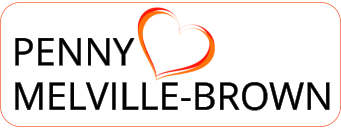I can’t pretend to talk for others with disabilities but share these thoughts:
- Getting a disability needn’t be the end of the world. I’d had a great naval career before my eyes started playing up. I only had sight in one eye when I was promoted to become1-of-8 women Commanders and, after medical discharge and blind certification, did even better. I led one organisation with an annual budget of nearly £250m (back in the 2000s), influenced Government policy as a Non-Executive Director on the Board of HMRC, chaired and worked for other Government, charity and voluntary bodies, ran my own business, was awarded an OBE and Honorary Doctorate, and won an international prize. That’s a lot of trumpet blowing but Navy: eat your heart out! The trick was to use blindness as an USP (Unique Selling Point), learn about equality legislation and generally blag my way through.
- I don’t live in the dark. Sometimes people talk about being “black blind” but I spend every day (and night) in warm early summer sunshine. It’s amazingly positive to be bathed in golden rays all the time. When others switch off the lights in a room, I don’t care except that they’re saving on the electricity bill.
- I don’t use Braille. Apparently, there are only around 20,000 visually impaired people who regularly do. That’s about 1% of all of us who are blind or sight-impaired. I did try decades ago but it was too slow and, once one reaches a certain age, fingertips aren’t always sensitive enough to feel the bumps. Instead, learning to be a demon touch-typist, to listen to documents being read at break-neck speed and to mark stuff with pound shop stick-on tactile letters is just as good.
- I don’t have a guide dog. Work, travel and life hasn’t left enough time for all the exercising, grooming, feeding etc. And guide dogs have to retire which can mean years of less independence waiting for a replacement. My alternative is the guide-boy who is very rewarding now trained, shares all sorts of fascinating information and doesn’t need a biscuit treat.
- I operate in 3-dimensions all the time. From careful touching to more bruising bumps and scrapes, learning the geography of surroundings doesn’t take long meaning independent navigation and, in my case, building and interior design. Thinking in 3D means I’m great at packing the most into the smallest space, can do ceramics and flower-arranging, work in pewter and can wrap Christmas presents better than most!
- Blind people are supposed to be the best lie-detectors. We can hear how your breathing changes, your vocal chords tighten, how your hesitations, pauses and distractions change your speech. It’s easy to hone those skills by listening to politicians and their spin-doctors. We have a huge advantage: judgements aren’t based on appearance but on what others say and do.
- Lastly, I’m not a sad and lonely little old lady. There’s the wonderful life-partner, family and friends, a busy and productive life, another book in the pipeline, learning to be the under-bee-keeper and many more new adventures.
Read more about surviving with a life-changing condition: “It could be You…” link to website or listen to the Radio 4 feature https://www.bbc.co.uk/programmes/m002gfxt or the much longer SDG Vision podcast https://sdg.vision/programs/penny-melville-brown-obe-talks-to-pierre-jones-3bafd8
